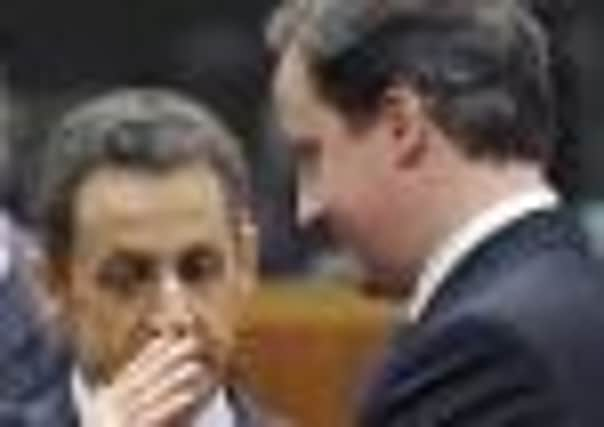Bernard Ingham: Troubled waters for Cameron as the EU fantasy turns into a sinking ship


I know from experience that the short route to applause on cruises is to criticise Brussels and all its works but I had not reckoned with igniting so much pent up frustration with my one word answer – “No”.
If I had had the time – the captain was coming on the tannoy to tell us where we were – I would have qualified my “No”. This is not because I think the EU has a future as presently constituted but because it is not a very satisfactory answer when you come to think about it.
Advertisement
Hide AdAdvertisement
Hide AdThe plain fact is that the EU in its various evolutionary forms has been with us for more than 50 years and we have been members, thanks to Ted Heath’s single-minded determination to sell our souls for a mess of Europottage, for very nearly 40 of them.
Even if the single currency collapses with unknown consequences – and there must be a limit to how long Germans will throw good money after bad – we shall still be left with a Europe in search of a future. Far too much political capital is invested in the European ideal for it to go away just like that.
So, right from my days charting Margaret Thatcher’s progressive disillusionment with an institution whose membership she had initially supported, I have found a consistent – and very debilitating – lack of clarity among professed EU opponents and sceptics.
What do they want? Is it to cut all ties with Brussels and stand bold, pure and alone in the world? Or is it – as Thatcher implicitly wanted – a different kind of Europe?
Advertisement
Hide AdAdvertisement
Hide AdOne of the ironies of this world is that while vaguely proposing a “freer, looser” Europe, Thatcher’s policies – reducing the UK budget contribution, avoiding EU bankruptcy by reforming the Common Agricultural Policy and signing the Single European Act to get into French and German financial markets – gave it the ambition to advance.
Unfortunately, it chose – as it was always likely to do – to advance towards the federal Europe she abhorred. It remains its unspoken ambition.
But that is by the way.
I am hanged if I know what our supposedly Euro-sceptic Prime Minister wants. He won’t touch a promised referendum on our EU membership while trying somewhat unconvincingly to insulate us from any more bail-outs of bankrupt member states.
Perhaps David Cameron is right to bat away a referendum because, quite apart from potentially causing him an avoidable headache, I suspect that not many people think a vote to leave would actually lead to that.
Advertisement
Hide AdAdvertisement
Hide AdIs it, indeed, what they really desire? Or is it, more accurately but more vaguely, Thatcher’s “different kind of Europe”?
At this stage, a referendum would make sense only as providing a bargaining counter. “Look here”, Cameron might tell the next Euro-summit, “my people say we should get out. What are you going to do to keep us in?”
It may well be they could never do enough to provide a comfortable berth for Britons. If so, the option of withdrawal would be clear. But we have never tested what value Europe puts on British membership.
This is because we don’t know what kind of Europe we want. We are much clearer about what we don’t want.
Advertisement
Hide AdAdvertisement
Hide AdWe don’t want a federal Europe in which Westminster has the mere status of a county council. We have already gone too far down that route. We see no good reason – other than its natural quest for power – why Brussels should seek to regulate our lives in detail. We want to govern ourselves.
And we most certainly do not like the notion of a rag bag collection of unelected bureaucrats and failed politicians having the right to legislate as a Commission to control our lives.
We do like co-operating with like-minded nations and trading with them. But we have not yet faced up to the need for EU rules, which inevitably reduce our sovereignty, to regulate that trade.
How far should those rules intrude into life beyond narrow commercial considerations?
Cameron may be inclined to let sleeping dogs lie. But the explosion I caused on the Black Watch suggests to me this one is sleeping very uneasily. And is horribly confused.